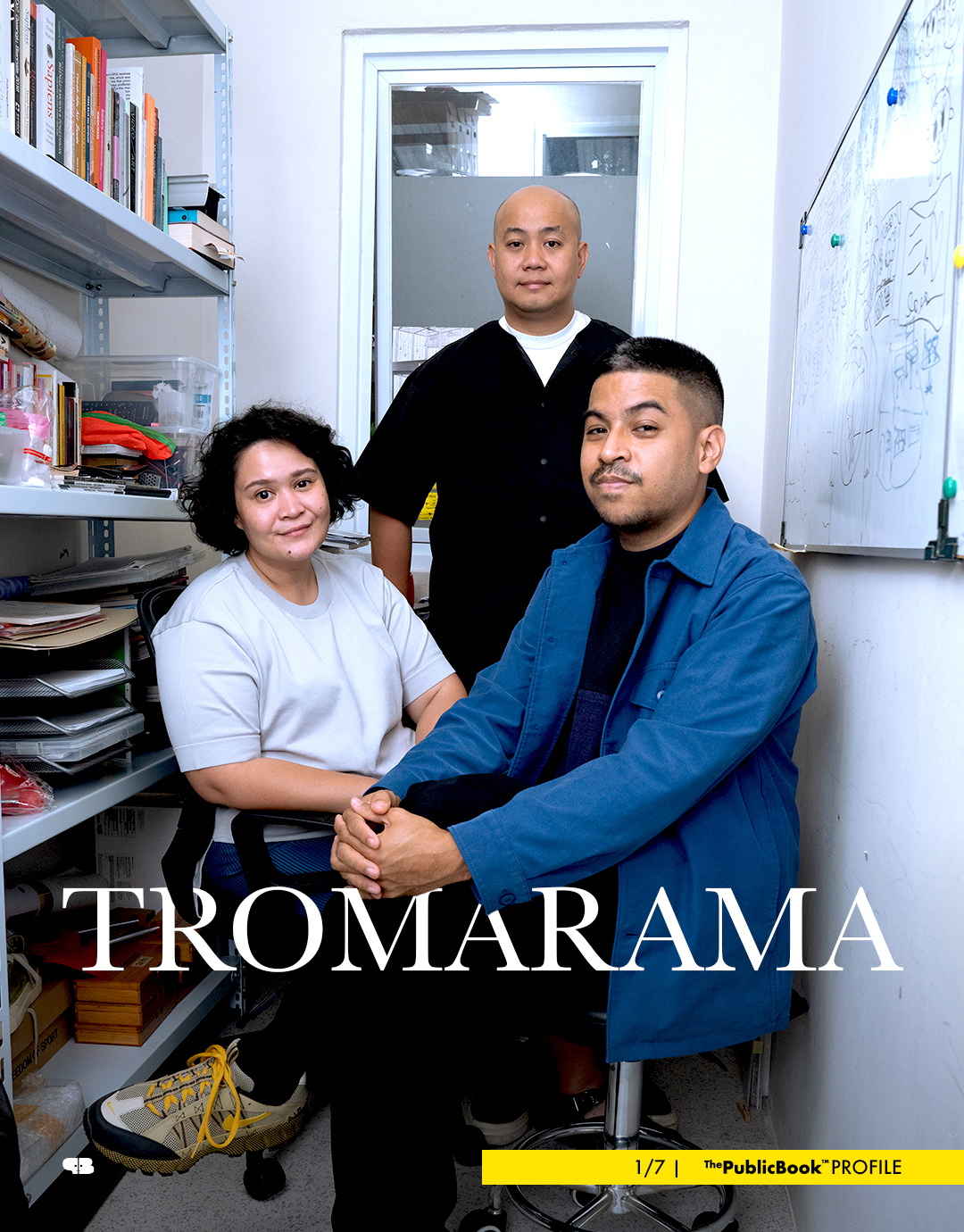November 01, 2024
Febie Babyrose, Herbert Hans, and Ruddy Hatumena started Tromarama together after a ‘traumatic’ experience in finishing their project together in 2006. Since then, Tromarama has explored the theme of the interconnection of everyday human life and technology in their creative endeavor. Tromarama shares even more stories with The Public Book in this interview.
What are the themes that Tromarama often explored?
Before, our first interest was in music videos. From 2006 to 2015, we explored issues and objects around us that happen in our daily lives. We talked about our routine when we were working in the office in 2008; then we talked about the electricity bill in our home; then we talked about spirituality. After that, in 2015, we experienced a shift in our creative process. We started to talk about internet culture.
It began with a conversation with one of our moms about how massive the internet had become. It was in 2010 when we started to be able to access the internet from our smartphones, and then there were WhatsApp and WhatsApp groups. We had a conversation with our mom about one picture she received on her phone about a war happening somewhere. It turns out it was a computer-generated image and looked very hyper realistic. From there, we approach our art to explore the fact that everything we do is mediated by technology and a monitor screen and how we tend to accept everything it shows as a fact without a filter. From there, Troamrama tries to create a gap between the audience and the facts that come out from the monitor screens. That was in 2017 when we developed our own software to unbox what we see on our monitor screen.
You also talked about the blurred gap between work and leisure. Can you elaborate more?
In the last four years, we focus on how social media has become a new economic model that shifts the definition of working. Without realizing it, when we log in and are active on social media, we produce capital for the platform with our behavior. Here, we see the space between working and leisure is blurred. Before the internet and social media, working was more definite. There is space, time, and tasks involved in working. But now, as social media become a new economy model, we don’t have specific working hours as we freely jump in and out from our social media; we aren’t bound to one office space.
Can you tell us more about your latest project, Auto Ally?
Auto Ally speaks about consent. When we use social media, who are the owners of our consent? Is it ours, our platforms? Auto ally born out of that reflection.
We also had an experience when one of us was feeling sick and wanted to do ‘kerokan’ as a treatment. The new coin had a rough lining, so we tried to find another coin in the e-commerce platform. We found out that many Netherland Indies coins produced in 1945 were sold as ‘kerokan’ coins. We are interested in how the coin has moved from currency to body enhancement tools, just like how the economy shifted through social media. Before, the currency was coins, but now it is engagement, whether likes or comments. It is what we are doing right now, and that’s how Auto Ally was created.
What are your expectations from your audience when experiencing your art?
We just want to create a conversation, and we hope our art can become a mirror of how we live in this era. First, we more often experience a representation than the real thing itself. For example, when you see Tromarama art on Instagram, it is a representation of what really happened in the exhibition. And it is a common way of life now. We see many distortions because as soon as it appears on the monitor, there are limitations of space and many things that are compressed into only as big as your smartphone screen. In the end, we try to question free will when, a lot of the time, our life depends on algorithms. The question is whether we have free will in our everyday life.
What is Tromarama’s plan for the future?
In the future, we will continue with what we have already done. From Auto Ally and other concerns, we want to see where it brings us next. There are some possibilities that we want to explore. We want to create new software and hardware. If before we were taking data from Twitter, now we want to get data from other sources as well.
#ArtAndTechnology #DigitalArt #AutoAlly #InternetCulture #SocialMediaEconomy #ArtConversation #CreativeProcess #ContemporaryArt




